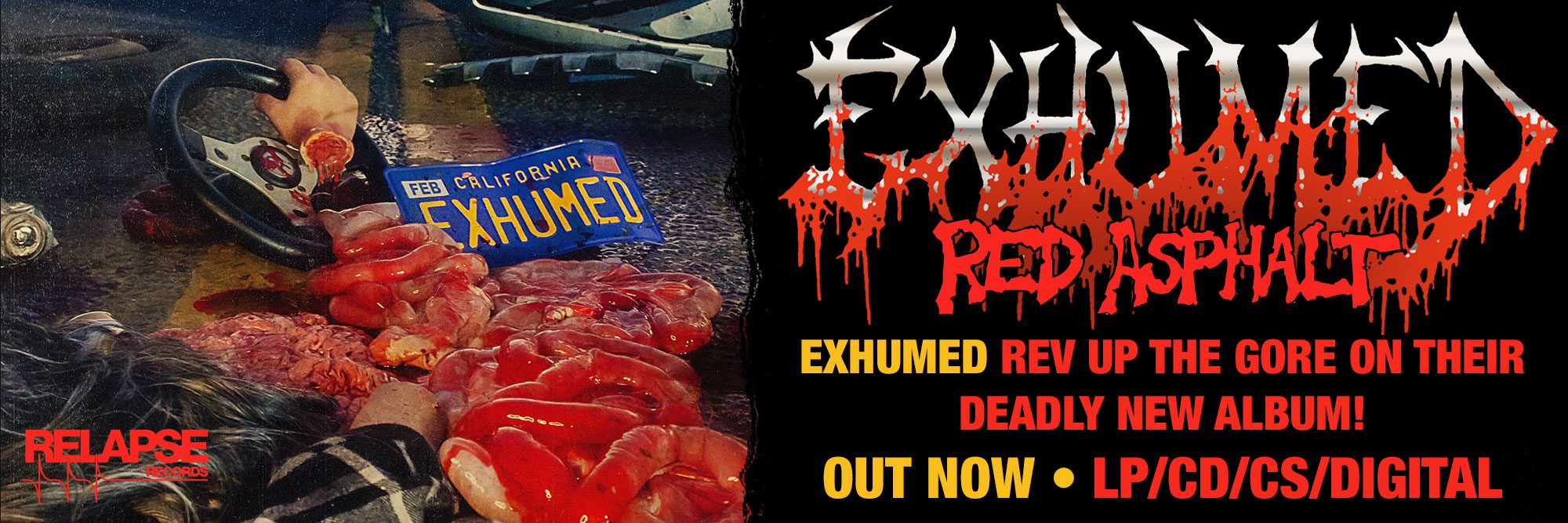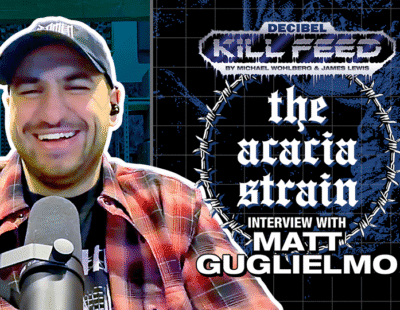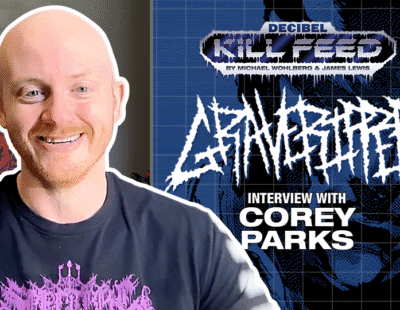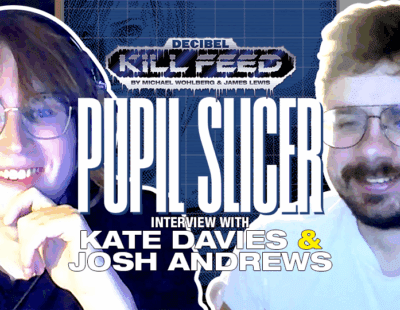If there’s one album in 2016 that deserves top honors but is likely to not get noticed it’s the new Hammers of Misfortune platter, Dead Revolution. Musically, it’s a continuation of the amazing 17th Street, but it’s so much more after repeated spins. There’s Hammers of Misfortune’s trad heavy metal–so imbued with true it hurts–and then there’s the forays into ’70s progressive rock, which blend mercifully into the group’s unforeseen jaunts into psych rock. Typically, bands of Hammers of Misfortune’s ilk aren’t terribly centered, and albums like Dead Revolution end up a fabulous disaster. But that’s not at all what Dead Revolution is like. In fact, as wandering as it is, sixth full-length is one of the finest examples of American metal since Metallica issued Ride the Lightning. It’s heavy, dark, adventurous, weird, foreign, and yet every song–from “The Velvet Inquisition” to “The Precipice (Waiting for the Crash…)” to ” Days of ’49”–is the epitome of awesome. Dead Revolution is at once contemporary yet throwback, an album smart to not rely on nostalgia or ‘what the kids are into’. Witness the New Wave of American Heavy Metal in Hammers of Misfortune! A bullet-quick Q&A with guitarist/songwriter John Cobbett.
What’s been happening in the Hammers of Misfortune camp since 17th Street?
John Cobbett: Well, we’ve been writing and recording, and playing a show here and there. Sigrid and I had a baby, and Joe got in a serious motorcycle accident from which it took some time to recover.
Members of Hammers of Misfortune are in other notable bands. Is there ever a conflict of interest or do you guys make it work for artistic and personal reasons?
John Cobbett: It feels like a pretty normal state of affairs, with everyone always busy. It’s been this way for so long I don’t remember a time when everyone in the band wasn’t juggling a job and one or two other musical projects. Seems like the best players are always the busiest.
How would you compare Dead Revolution to 17th Street?
John Cobbett: There’s no power ballad on this one. Sonically, it’s more varied, with lots of different tones and sounds. I think it’s darker and heavier, but it’s hard for me to be objective.
Did you spend the last 5 years writing Dead Revolution or did the album come together more recently?
John Cobbett: Writing and practicing when we can. With everything that’s been going on it can be struggle to find the time to write and rehearse. It’s been on my mind constantly and I admit it can be frustrating at times.
17th Street was highly acclaimed. Did that put pressure on the songwriters in the band?
John Cobbett: Nah. Critical acclaim ain’t what it used to be.
Describe a typical—if there’s typical—songwriting session for Dead Revolution.
John Cobbett: Not very glamorous. A cup of coffee, a guitar and a keyboard. The riffs come easy, lyrics and arrangements are murder. Most of it comes down to making decisions, deciding what to cut out and what to keep. At least half of the music I write gets thrown away.
Do recall how the song order was finalized on Dead Revolution? The album has a very natural flow to it.
John Cobbett: Thanks! Lots of scribbled lists and careful thought went into the order. The sequence is different on the vinyl, in order to fit neatly on two sides without compromising audio quality. I’m pretty sure it still works well.
Lyrically and conceptually, where is your head at on Dead Revolution?
John Cobbett: As usual, I’m reluctant to talk about it. It has a lot to do with what’s been going on around me where I live, which just so happens to be going on seemingly everywhere. I live in San Francisco’s Mission District, and have for over two decades. A little research into what’s been going on here would explain a lot to the curious.
Tell us about where you recorded, who you recorded with, and what were the studio sessions like?
John Cobbett: We recorded at Light Rail Studios in San Francisco, with Nick Dumitriu at the controls. We recorded half the album before our son was born, and half after. We used no autotune, no digital reverb, no amp sims, no simulated keyboards, practically no plug ins. It’s pretty raw.
Do you think there’s a distinction between American heavy metal and European heavy metal? Sonically and aesthetically.
John Cobbett: You’re talking about a huge range across many scenes, but overall, yes. America can’t seem to stomach power metal like Europe can, and American metal is way more infected with “indie rock” tendencies than European metal. Also, metal does much better in Europe. In the States it’s more marginalized. This is being very general of course…
What’s next for Hammers of Misfortune?
John Cobbett: Band stuff: playing some gigs and eventually writing some more songs. I’m hoping we get to play some festivals this time, that would be excellent!
** Hammers of Misfortune’s new album, Dead Revolution, is out now on Metal Blade Records. It’s available HERE on vinyl and CD. Find what the finest metal album of 2016 sounds like. No, seriously.






